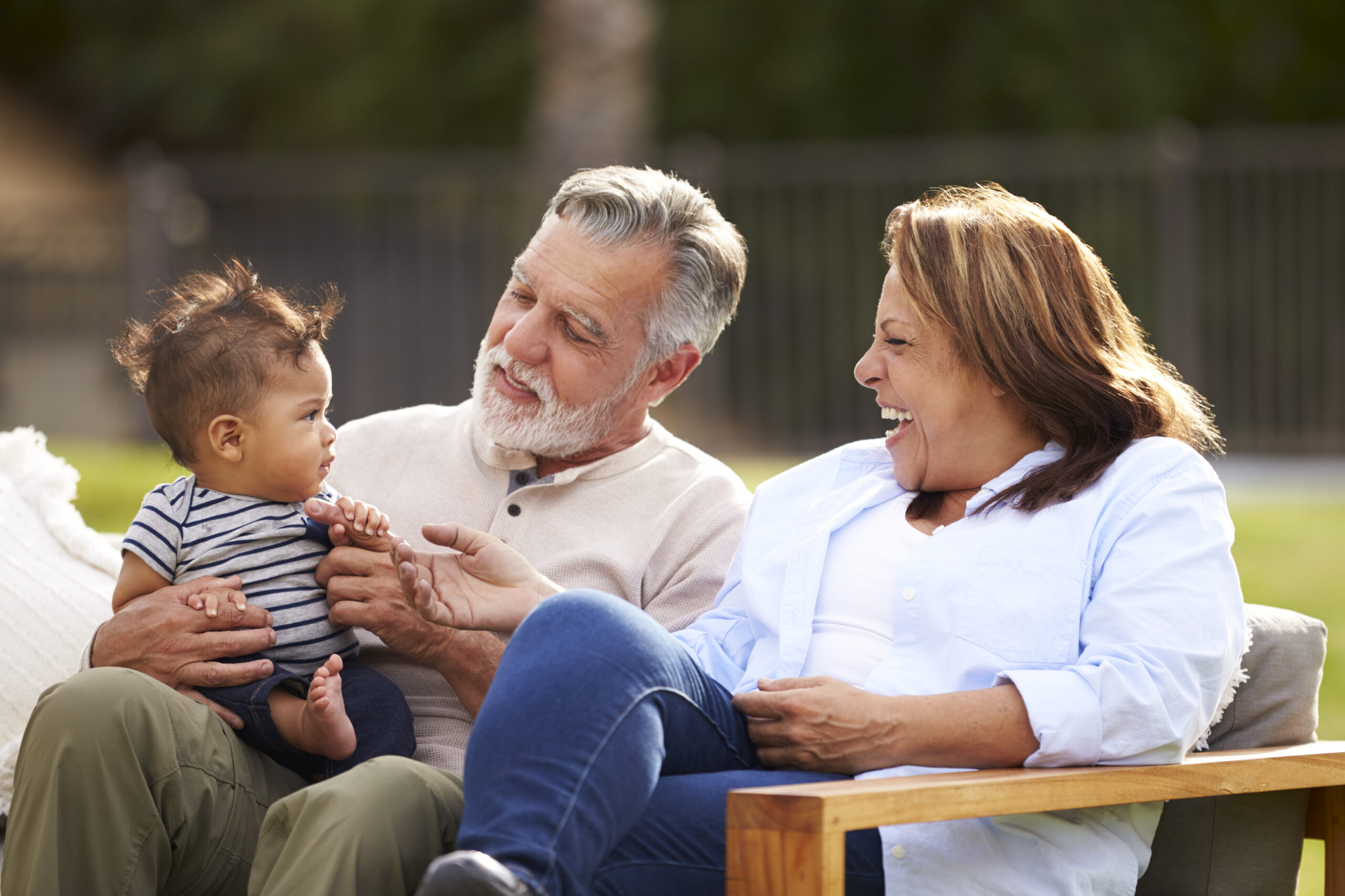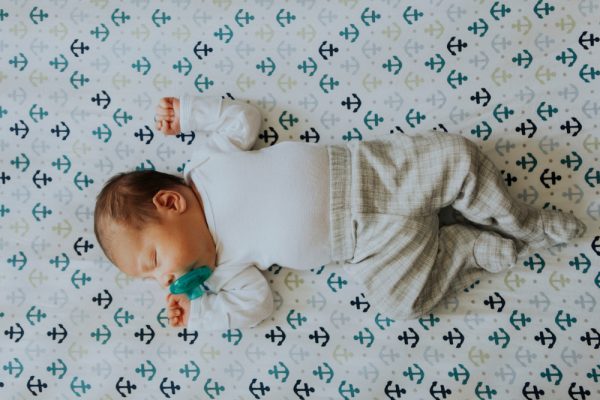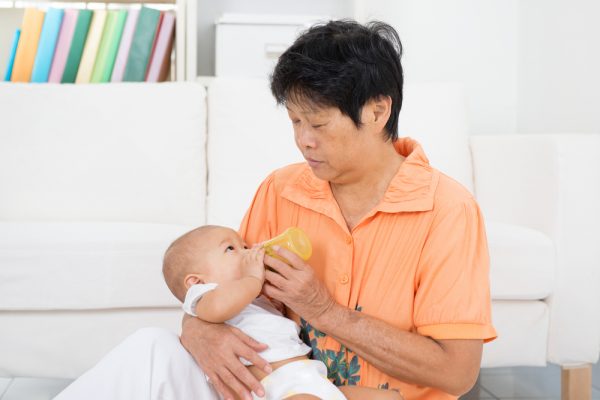 Whether you watch your grandchildren regularly or occasionally, the personalized, loving care you provide them is a benefit that can’t be measured.
Whether you watch your grandchildren regularly or occasionally, the personalized, loving care you provide them is a benefit that can’t be measured.
But for grandparents who haven’t had to stay up to date on the constantly changing parenting safe practices, there’s a lot to catch up on. Many parenting practices and guidelines have changed from a generation ago, and these out-of-date practices could potentially be putting your grandbabies at risk.
“I know we all want what is best for our grandchildren, but a lot has changed based on experience and studies since we were raising our kids,” said Sarah Adams, MD, a new grandparent herself and pediatrician at Akron Children’s Pediatrics, Hudson. “We know so much more now. We have new, safer equipment and new information readily available that grandparents just didn’t have back then. Think about technology alone and how many differences there are now.”
Whether your grandbaby is the first or the 10th, it’s important to do some research and discuss with your grandbaby’s parents the latest guidelines in baby care to keep your grandchildren safe while you’re on duty.
Then, check out these 5 old-school remedies that could pose real threats to the health and safety of your new grandbaby. Find out what Dr. Adams recommends instead.
Putting babies to sleep on their bellies
There’s simply more evidence available today that proves babies who sleep on their backs carry the lowest risk for Sudden Infant Death Syndrome (SIDS). Since the American Academy of Pediatrics’ collaborative “Back to Sleep” campaign to reduce the risk of SIDS began in 1994, the incidence has dropped by more than half.
Follow the ABCs of safe sleep: Babies are safest Alone, on their Backs and in an empty Crib.
“Be sure not to use a soft mattress or bedding, blankets, pillows, stuffed animals or bumpers,” warned Dr. Adams. “The baby should sleep alone and on their backs to decrease the risk of SIDS.”

Follow the ABCs of safe sleep: Babies are safest Alone, on their Backs and in an empty Crib.
Drop-side cribs were once used in most households to conveniently lift baby in and out of the crib. Today, the Consumer Product Safety Commission has banned cribs with drop-down sides because they were blamed for many infant deaths. They have hidden hazards that can cause strangulation or suffocation.
Instead, use a crib, play yard or bassinet that meets today’s safety standards. Just be sure to lower the crib mattress as your grandbaby ages to ensure she doesn’t fall or climb out.
If you’re going to use a bassinet or play yard, make sure your grandbaby is developmentally the correct size for it. Babies can outgrow these types of cribs quickly.
“Babies should not sleep in car seats, bouncy seats or a swing, and especially not in your bed,” advised Dr. Adams. “Instead of bed sharing, I recommend room sharing. This means having your baby sleep in the same room, but not the same bed as you.”
Using teething gels to soothe sore gums
To soothe swollen gums, many parents used teething gels. But, the Food and Drug Administration has issued warnings about the active ingredient in them: benzocaine. There have been many reports of rare, but deadly side effects associated with the ingredient, especially for kids 2 years and younger. In some cases, these products have been taken off the shelf.
“The best way to soothe sore gums is to take a clean wash cloth, rinse it in cold water and put it in the freezer for 30 minutes,” said Dr. Adams. “Babies enjoy chewing on that.”
Though teething rings are also a good choice, she warns grandparents to steer clear of the ones with liquid in them. She also doesn’t recommend teething necklaces.
Treating diaper rash with baby powder
Baby powder has traditionally been used to prevent diaper rash. However, some talc-based baby powders have potential links to cancer, and inhaling the powder poses a real threat to baby’s lungs and has been linked to several deaths.
Instead, use oil-based creams or ointments. You also can change your grandbaby frequently to keep her out of wet or soiled diapers.
“Another good substitute is baby powder made with corn starch,” said Dr. Adams. “It’s great for baby’s bottom and under her neck if she’s drooling a lot.”

Surprisingly, giving infants water can be dangerous. If you think your baby needs more hydration, fit in another feeding of formula or breast milk.
Giving infants water for proper hydration
It is not safe to give babies under 6 months of age plain water. Babies don’t need the extra hydration. All of their hydration needs are met through breast milk or formula.
Water can actually interfere with a baby’s nutritional needs. Water can fill up their tiny tummies, leaving little room for the nutrition they need. Also, water can interfere with her body’s ability to absorb nutrients in breast milk or formula.
It’s not a good idea to water down formula, either. It can actually lead to water intoxication.
If you’re concerned about a baby’s hydration, Dr. Adams recommends simply giving her an extra feeding of breast milk or formula.
Using ice baths to reduce fevers
It’s dangerous to put a baby into cold water because it could drop down the body temperature too much.
“It can also cause your grandbaby to get the chills,” said Dr. Adams. “The chills is our body’s way of trying to bring our temperature back up, which is counterproductive if you’re trying to reduce baby’s fever.”
For fevers — a temperature that is 100.4 degrees or higher — Dr. Adams recommends plenty of fluids and possibly a fever reducer, such as Tylenol or ibuprofen for babies over 6 months. Under 3 months, you should contact her physician.
For more information, check out Akron Children’s Pediatrics and meet our providers.










